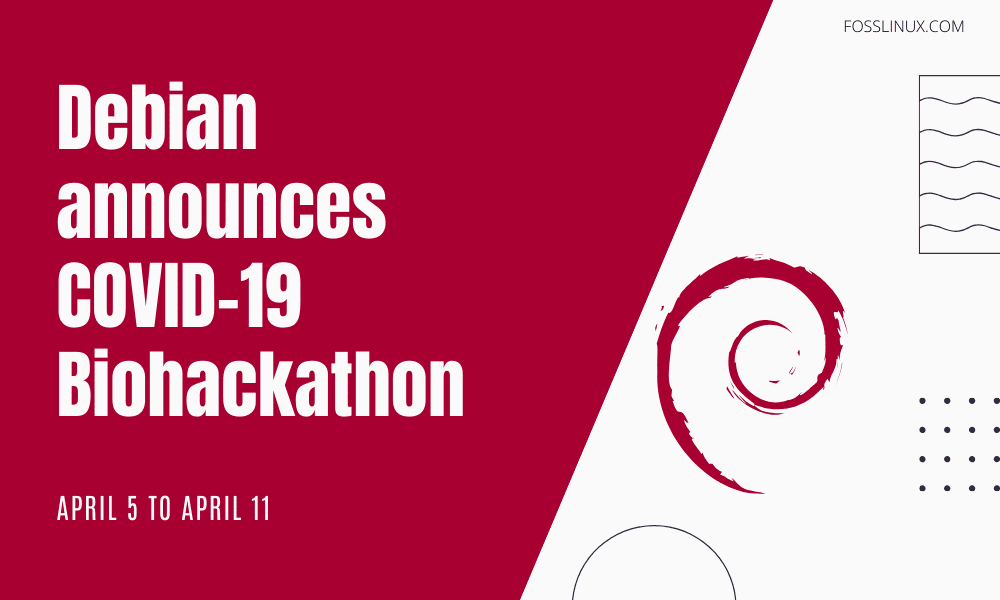The Debian platform has many ‘Pure Blends’ available, which are distributions specifically designed to serve the requirements of a specific topic. For example, there is Ubuntu Studio, a version of Ubuntu, particularly for content creation. Or Fedora Labs.
The team of Debian Med (medical-related Debian variation) has announced a ‘COVID-19 Biohackathon’ between 5 April and 11 April to help with the pandemic that has depredated the world.
The Debian Med team has invited anyone who desires to help the virtual Biohackathon, and you don’t need to worry about not knowing biology or medicine. You can help out with various things, like documentation, testing, bug triage, CI, translations, packaging, or downright code contribution.
So it is pretty clear that you don’t have to have the hardcore technical programming knowledge to make a difference there. If you are confident enough with one of those things, you can contribute.
1. Bug Triage
The link is provided for the page that has the bugs listed. This is the page, and bugs are color-coded according to the urgency. If you would like to help out with any of those, you can use the direct link to the source code that is provided on the page.
2. Packaging
Software that needs to be packaged is listed on this website. Again, color-coded according to their relevance. If you wish to help, you can use the direct links provided on the page to reach the source code.
3. Code Contribution
The contribution of code directly to the programs can also be made. This link has been provided by the Debian team to let users explore the concerned programs so that they can explore the applications and make a contribution.
It is also reminded that the developers of these programs are mostly people involved in the medical communities, and are far too resource-limited. It is essential to be kind to the authors/maintainers and to remember that they have limited resources to review the contributions. Triaging issues and opening pull requests will be much more helpful than focusing on trivial things.
4. Porting
Another critical point is to focus on the amd64 architecture while contributing because that is the most used architecture for biomedical software. Next on the priority list would be arm64/ ppc64l/ s390x architectures. The team has also mentioned that from an open hardware perspective, contributing to riscv64 is also appreciated, but that is not the priority at the moment.
5. Common Workflow Language
Contributors can also help in improving the availability of automated biomedical workflows, using the open standard of the Common Workflow Language. The implementation of CWL is written in Python and has many open issues that have nothing to do with a biomedical nature. The problems can be reviewed here.
Conclusion
In the end, it has been stated that it is straightforward to contribute to the Debian Med team. The merge requests on Salsa (Debian’s official collaborative development server on Gitlab) are quickly processed. They have also encouraged people to ask for membership to the team to be able to contribute directly in the future.
Here are some relevant links:
- The official announcement
- The policy page, where most questions have been answered
- Github page where the Biohackathon is being organized
- Debian Med team’s participation page
If you can help with anything, we at FOSS Linux urge you to step forward and make a difference. Thank you.

